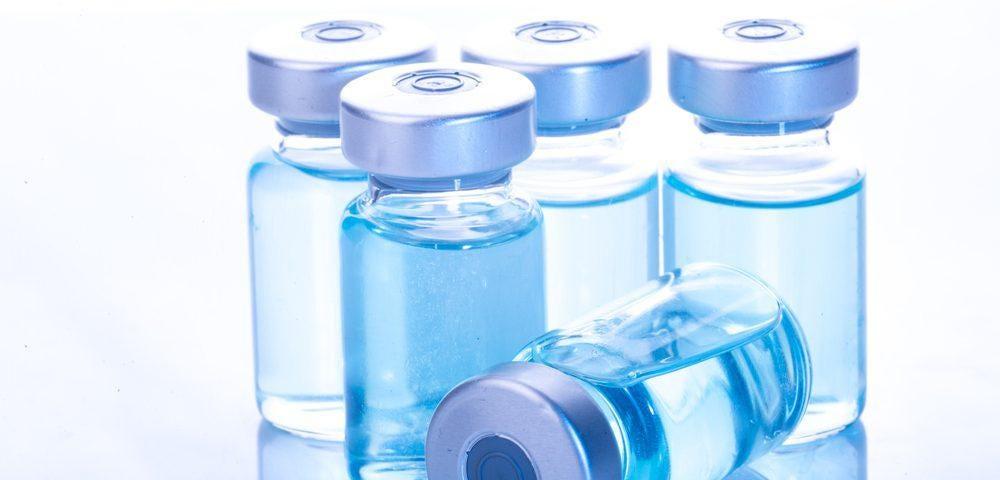Remicade Biosimilars An Overview of Safety and Efficacy

Infliximab and Biosimilars
Remicade (infliximab) is a biologic drug used to treat autoimmune diseases such as rheumatoid arthritis, Crohn's disease, ulcerative colitis and psoriasis. It was first approved by the U.S. Food and Drug Administration (FDA) in 1998 and works by blocking tumor necrosis factor-alpha (TNFα), a protein involved in inflammation. As the patent for Infliximab expired in late 2015, several biosimilar versions were approved by the FDA and European Medicines Agency (EMA).
What are Biosimilars?
Remicade Biosimilars are biological products that are developed to be similar to an already approved biological product, known as the reference product or originator biologic. Biosimilars can only be approved once the original product's patent expires or is challenged. They are designed to be highly similar to the original product with no clinically meaningful differences in terms of safety, purity and potency. However, due to the inherent complexity of biological products, biosimilars are not generic copies and thus small differences in clinically inactive components are allowed. Importantly, they undergo a rigorous approval process to ensure they are just as safe and effective as the originator drug.
FDA Approved Remicade Biosimilars
The first Infliximab biosimilar to be approved by the FDA was Inflectra (infliximab-dyyb), which was greenlit in April 2016. Since then, Renflexis (infliximab-abda) was approved in April 2017 and Avsola (infliximab-axxq) received approval in September 2017. All three are approved to treat the same indications as Infliximab including rheumatoid arthritis, Crohn's disease and ulcerative colitis. The biosimilars contain the same active ingredient - infliximab - as Infliximab but are produced via different manufacturing processes than the reference product.
Clinical Comparisons to Infliximab
Extensive clinical trials were required by the FDA to demonstrate biosimilarity of each product to Infliximab. For example, Inflectra was compared to Infliximab in two randomized, double-blind phase III trials involving over 1,000 patients with rheumatoid arthritis or ankylosing spondylitis. At week 30, no clinically meaningful differences were found between groups in terms of American College of Rheumatology response criteria, disease activity scores or adverse event profiles. Similar results were seen in trials of Renflexis and Avsola, with equivalence demonstrated across a variety of effectiveness and safety measures. Long-term data is still being collected, but initial studies provide confidence in extrapolating efficacy and safety data from Infliximab to its biosimilars.
Cost Savings Potential
A major advantage of biosimilars is the potential for reduced healthcare costs. As the first entrants in a competitive market, Infliximab biosimilars are priced 15-25% below the originator drug's wholesale acquisition cost. Greater cost savings are anticipated as more biosimilars are introduced and market share grows over time. Greater accessibility of lower-cost treatments benefits both patients and the healthcare system. For example, a recent study estimated that biosimilar competition could save the U.S. healthcare system over $54 billion between 2017 and 2026. Ultimately, more affordable treatment options can expand access to biologic therapies.
Immunogenicity Considerations
One concern about switching between biologics is increased immunogenicity or formation of anti-drug antibodies that may impact clinical response. However, results thus far have been reassuring. Randomized trials found no significant differences in immunogenicity between Remicade and Inflectra and Renflexis. Routine clinical practice studies have also not detected increased risk when switching stable patients to a biosimilar. While longer-term data is still pending, initial evidence suggests patients can be safely transitioned to Infliximab biosimilars without altering immunogenicity profiles. Ongoing monitoring is warranted as more real-world utilization occurs.
Future Outlook and Predictions
The availability of Infliximab biosimilars has created new treatment choices for patients and opened opportunities to reduce healthcare spending. As more clinicians gain experience prescribing biosimilars, utilization is projected to rise steadily over the next 5-10 years, with some estimates predicting biosimilars could capture over 50% of the infliximab market. With increasing acceptance among doctors and continued adequate interchangeability and safety/efficacy data, Infliximab biosimilars are poised to play a larger role in managing autoimmune diseases both nationally and globally. Wider adoption has the potential to bring biologic therapy within reach for millions more patients worldwide.
biosimilars provide a safe, effective and more affordable alternative to Remicade for treating debilitating conditions such as rheumatoid arthritis and inflammatory bowel disease. Rigorous clinical trials have shown biosimilarity across most measures. With comparable safety, efficacy and immunogenicity demonstrated, Infliximab biosimilars offer a promising means to expand access to biologic treatments while curbing ballooning healthcare costs. Given their substantial cost savings potential, biosimilars will likely transform the rheumatology and gastroenterology treatment landscapes in the years ahead.
Discover the language that resonates with you:
About Author:
Vaagisha brings over three years of expertise as a content editor in the market research domain. Originally a creative writer, she discovered her passion for editing, combining her flair for writing with a meticulous eye for detail. Her ability to craft and refine compelling content makes her an invaluable asset in delivering polished and engaging write-ups.
(LinkedIn: https://www.linkedin.com/in/vaagisha-singh-8080b91)
- Art
- Causes
- Crafts
- Dance
- Drinks
- Film
- Fitness
- Food
- Juegos
- Gardening
- Health
- Home
- Literature
- Music
- Networking
- Other
- Party
- Religion
- Shopping
- Sports
- Theater
- Wellness


